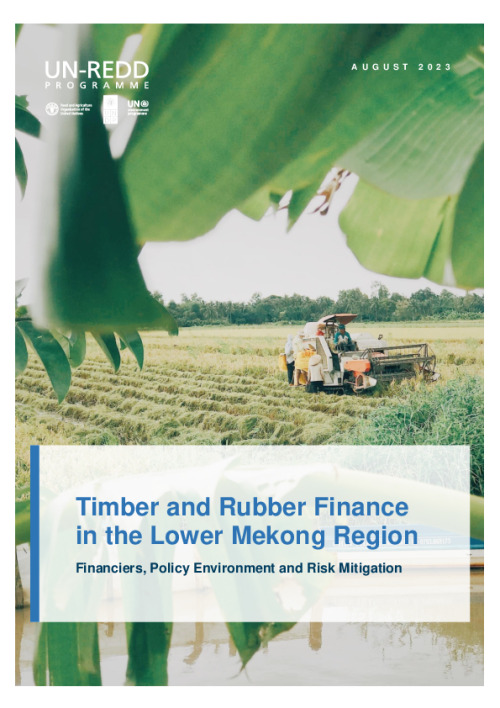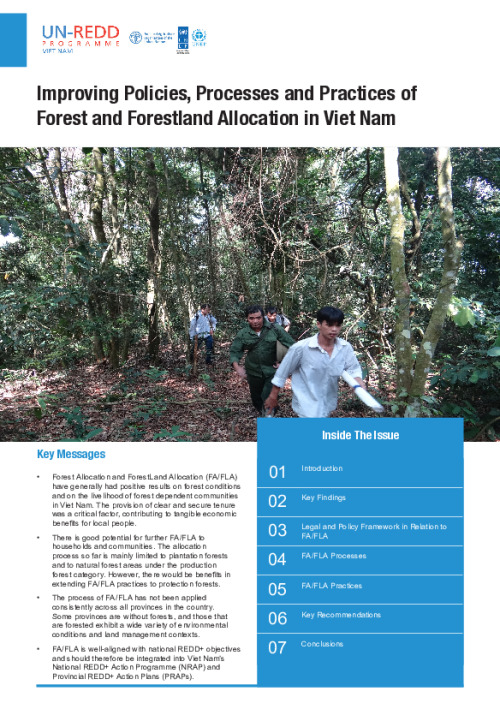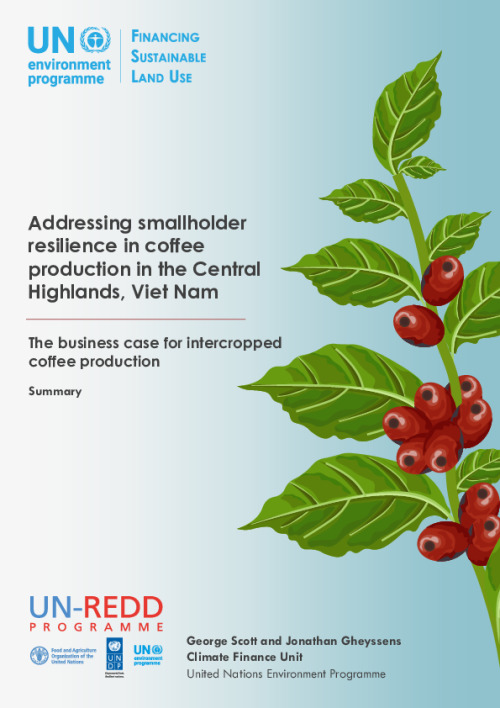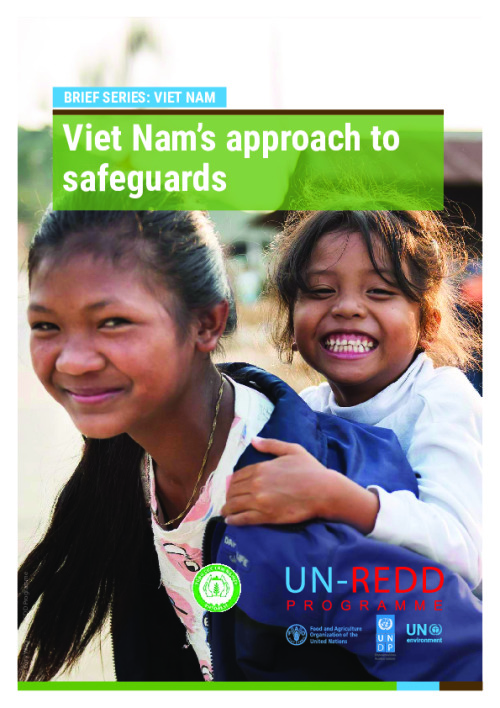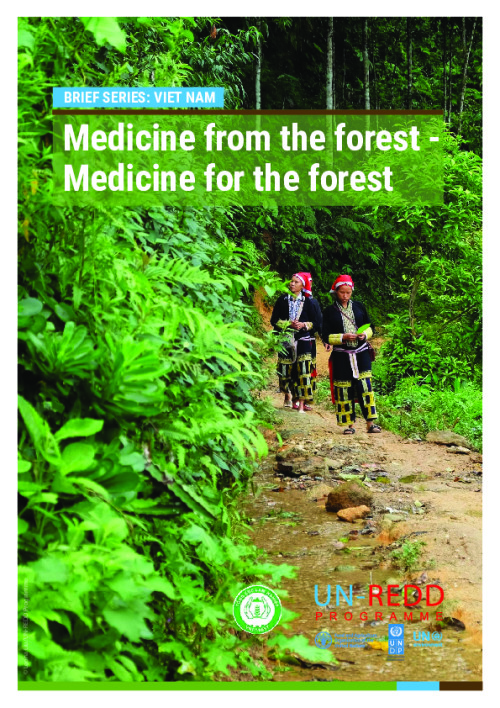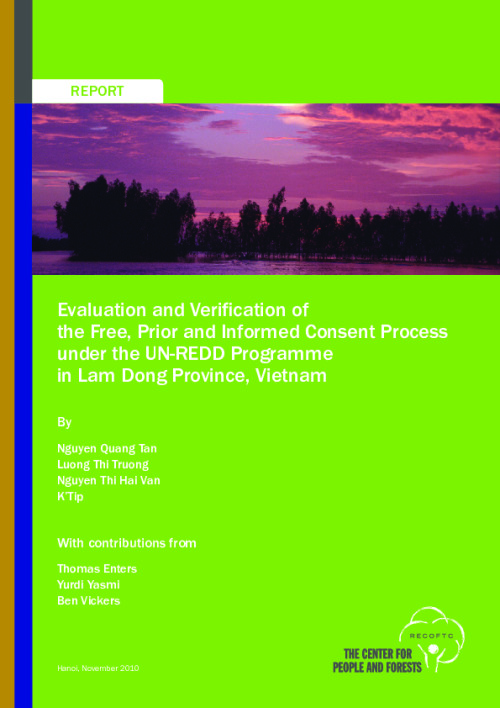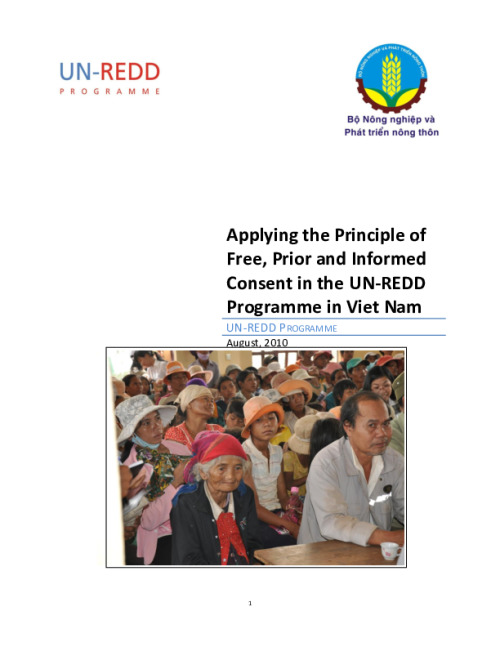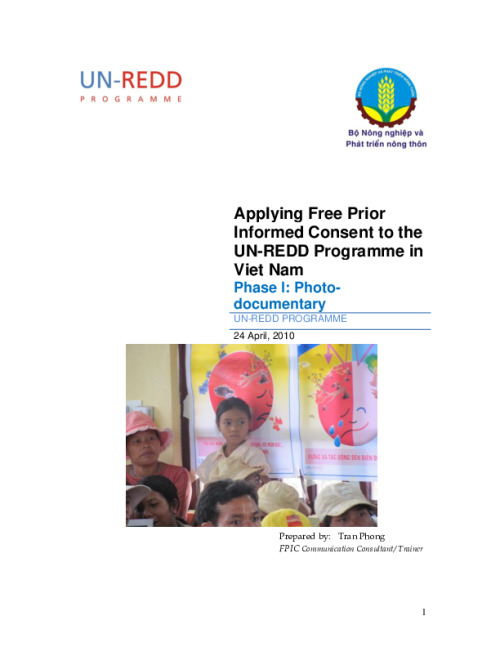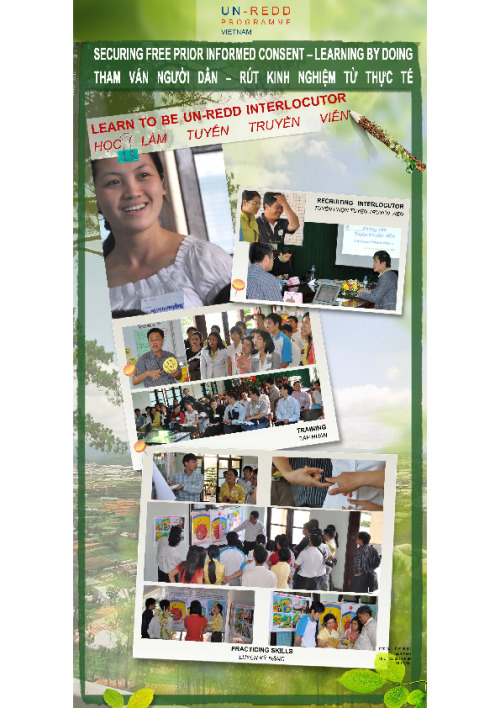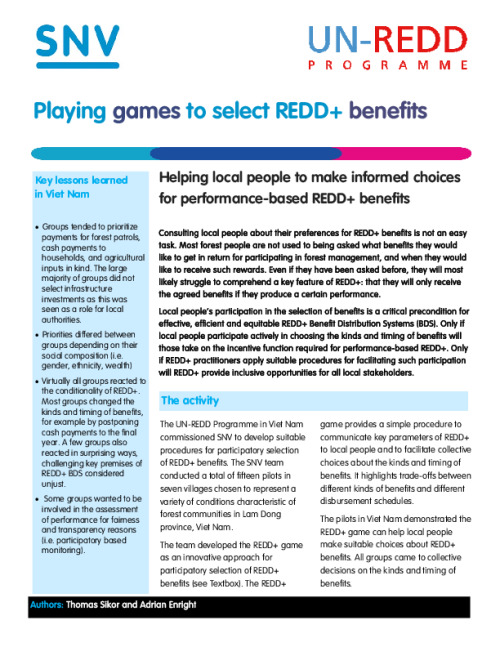The work done by Viet Nam on the Warsaw Framework pillars was completed in 2018, thanks to UN-REDD Phase II. Continuing from 2019, in 2020, the Government undertook its MRV, supported by UN-REDD, and worked on the submission of a BUR technical annex on REDD+. Based on the Government’s MRV, which indicated positive results, a process to apply for RBPs from the GCF has been initiated by the Japan International Cooperation Agency (JICA).
The Programme contributed to the review of the MRV components against Viet Nam’s FRLs in coordination with JICA, including support to the documentation of the NFMS through the REDD+ technical annex, and provided support to the Government towards accessing GCF RBPs in the future (Output 2.6).
Building on the revised National Action Plan on REDD+ approved in 2017 and the corresponding Mid-Term Implementation Plan, the Programme successfully supported Viet Nam to develop the project titled Integrated sustainable Landscape management through deforestation-free jurisdiction approach in Lam Dong and Dak Nong provinces project, funded by the European Union (EU) (EUR 5 million). An agreement with the EU was signed at the end of 2020 while agreement negotiations with consortium partners are ongoing. Once concluded, project implementation is expected to begin in 2021. (Output 3.27).
Progress on the monitoring system of the national and provincial REDD+ action plans has been delayed, compounded by challenges posed to travel and meetings by COVID-19. However, the delays are limited, and the monitoring system is expected to be completed for presentation to Government well within the first quarter of 2021 (Output 3.28).
UN-REDD supported the development of a prototype web-based interface on results from the monitoring and evaluation framework. The Programme’s technical assistance also supported the uptake of knowledge and experience on the use of spatial planning approaches and results across sectors, which has led to the development of an EU-funded project on a deforestation-free jurisdictional approach for the Central Highlands. This project is expected to be an opportunity to test and demonstrate how the monitoring and evaluation framework can be operationalized.
COVID-19-related constraints are now being eased in-country, but international travel remains restricted.
UN-REDD is providing support to the Government in coordination with JICA, the agency proposed to take on the accredited agency role under the GCF RBP.
UN-REDD is also coordinating with partners under the EU-funded project for the Central Highlands.
